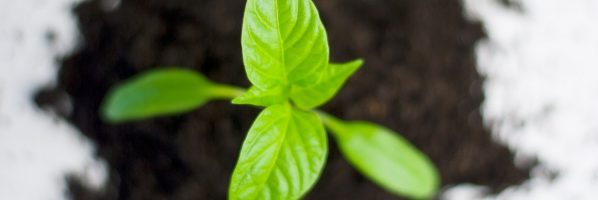Penn State Sustainability Efforts Continue with $100,000 Gift

Penn State Smeal College of Business alum Robert Davidow and his wife Suzanne Davidow gifted the school with $100,000 to increase the school’s sustainability efforts, yielding the inception of the Davidows Sustainability Fund.
“The world is becoming more focused on conserving the environment and Smeal has recognized this trend and integrated it into its studies. Business fundamentals are of paramount importance for today’s students, but when you combine that with sustainability, you can have a powerful social impact,” Rob Davidow said. “It’s important for the University to encourage and teach sustainable business practices and I am excited to watch Smeal collaborate with other departments at Penn State to develop unique strategies to the business challenges arising from growing a populace.”
The Smeal College of Business has an impressive track record with sustainability. In fact, even the Smeal building is environmentally-friendly, having received LEED-EB (Leadership in Energy and Environmental Design-Existing Building) gold-level certification. Smeal was also among to first business schools to create an actionable sustainability plan. As a Smeal graduate, Rob Davidow was no stranger to these efforts.
Rob and Suzanne have channeled their philanthropy toward other environmental consciousness efforts as well. They have invested in the Israeli university, The Technion, in order to allow the school to help Israel become water-efficient.
“Rob and Suzanne have been passionate advocates for solutions to some of the most critical global sustainability challenges, with a particular interest in water insecurity. This generous new commitment will extend their legacy of support for these critical issues,” said senior director of development and alumni relations Michelle Houser.
“I hope Rob and Suzanne’s generosity inspires other Smeal alumni to consider how they too can impact the world through philanthropy,” Houser said.
Rob Davidow graduated from Smeal in 1964, and his commitment to giving back to the institution and the world will certainly secure a distinguished legacy for the private investor.
Lazaridis MBA Students Learn Sustainable Practices from Unilever Expert

MBA students at the Wilfrid Laurier University Toronto recently had the opportunity to hear from Catherine McVitty, Specialist in Corporate Social Responsibility and Sustainability at Unilever, on creating sustainable business practices.
MIT Sloan Looks at What Businesses Need to Address Sustainability

The introduction and advancement of sustainable practices in industries like biopharmaceuticals, IT, and energy, has already turned into increased profits, as well as a boost in talent in recruitment. Rebecca Linke from MIT Sloan looked deeper into the changes and why more are needed soon.
Temple Surplus Property Program Off to Promising Start

Temple University has implemented a Surplus Property program that will promote sustainability on campus. The program is led by surplus property coordinator, Eric Gryzbowski. Gryzbowski manages the materials in Temple’s North Philadelphia warehouse. In previous years, Temple buildings and the Temple central warehouse have been crowded with obsolete tools and furniture.
Gabelli Addresses Sustainability and Social Entrepreneurship, Wins AACSB Award

Gabelli School of Business recently celebrated the school’s win at AACSB Award winning 2017 Innovations That Inspire initiative, created to “shine a spotlight on a variety of ways that business schools are changing the face of business education.”
2 Key Takeaways from the Ivey Think Big Forum for MBAs

If there’s one thing that every MBA program emphasizes, it’s thinking big. Looking at a business in only small sections or chunks won’t give you the entire picture. In fact, it can make you blind to what’s actually happening. At least that’s the message that was shared at Ivey Business School’s Think Big Forum.
The forum, which was organized by MBA students and introduced a panel of six experts spoke about the importance of business sustainability. And while there was a lot to takeaway from the event there were two key lessons: long-term prosperity and cooperation. Continue reading…
